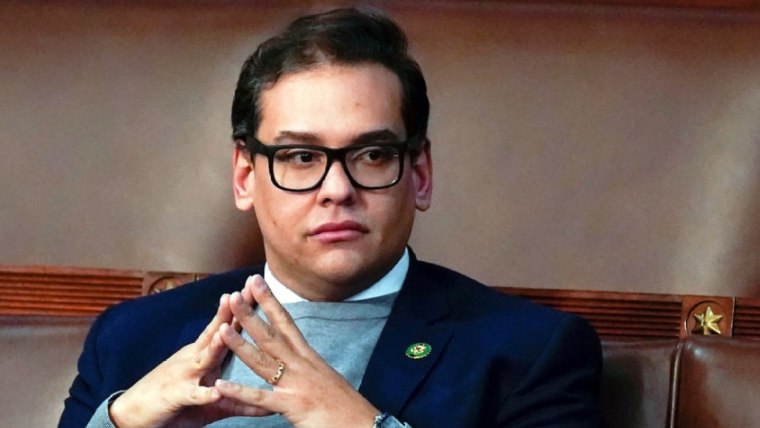What did Donald Trump do today?
He commuted the sentence of a felon even more like himself than most of his pardons.
Today, Trump commuted the sentence of former Rep. George Santos, who was expelled from the House earlier this year after being convicted on 23 felony counts. Santos had served less than a year of an 84-month prison sentence. Trump struck a jokey tone in the social media post announcing that Santos had been released from federal prison, calling him a "rogue."

In reality, to quote the headline of a press release by Trump's own DOJ, Santos "filed fraudulent FEC reports, embezzled funds from campaign donors, stole identities, charged credit cards without authorization, obtained unemployment benefits through fraud, and lied in reports to the U.S. House of Representatives." That's only a small part of what made Santos a notorious joke within months of his election in 2022. He also told outrageous lies during his campaign for the House about an identity that was almost completely fabricated: among other things, he falsely claimed to be Jewish, a Wall Street trader, and college volleyball star—or for that matter a college graduate. Even as he ran for Congress, he was running away from penny-ante scams that included stealing money meant to save a disabled veteran's dog.
Trump's commutation also means Santos will not be required to pay back the money he fraudulently got from donors.
Trump explicitly linked Santos's release from prison with his loyalty to Trump and the Republican party, saying that he'd had the "Courage, Conviction, and Intelligence to ALWAYS VOTE REPUBLICAN." Saying so out loud is unusual, but virtually all of Trump's grants of clemency from both terms have involved either political favors to his loyalists, or pardoning people of the kinds of crimes Trump is known to have committed. (Santos qualifies as both.)
Santos is the tenth Republican member of Congress that Trump, who is himself a convicted felon, has pardoned or given a commutation of sentence to.
Why does this matter?
- Whether or not you're held responsible for your crimes isn't supposed to depend on whether Donald Trump likes you.